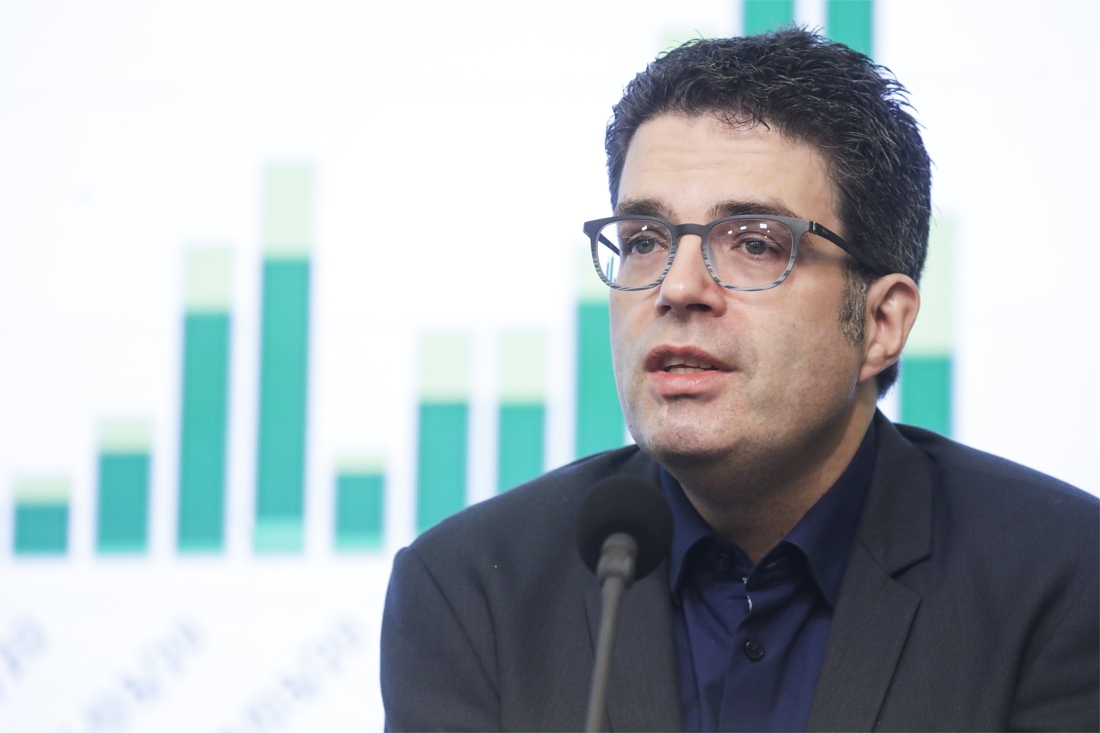The number of reported positive tests is falling for the first time since the start of the second wave, but the number of deaths is soaring. Follow the update from the Crisis Center on the corona crisis live above.
–
‘The number of infections is stabilizing, the number of hospital admissions is increasing, but less quickly. Everyone is pleased ‘, Yves Van Laethem, the French-speaking spokesman for Sciensano, begins with the press conference.
At the same time, he immediately warns: ‘But the delay is not enough. We cannot be satisfied yet, we must continue to drastically reduce the number of cases. ‘
And Steven Van Gucht, the Dutch-speaking virologist at Sciensano, also said: ‘Let there be no doubt that we must follow the strictest measures. If we do that, we can stay below the maximum capacity of our hospitals in the coming weeks. ‘
The decrease in the number of infections is 4 percent. Van Laethem does refer to the other test strategy: since October 21, people without symptoms are no longer counted. ‘Yet we also see a decrease in people with symptoms,’ says Van Gucht. Especially in Brussels and Flemish Brabant the number of cases is decreasing, but this is also the case in Liège, Antwerp and Limburg. The increase is also slowing down in the rest of the country. ‘
The good news does not apply to the most vulnerable group: the elderly. There is still an increase in the number of infections there.
A total of 7,485 people are now in hospital, 1,351 of whom are in intensive care. ‘We expect the number of people in intensive care to increase further in the coming days. Hopefully we will stay below the maximum capacity of 2,000 beds. ‘ Although the number of hospital admissions is increasing less quickly (plus 26 percent), a record number of 877 new patients was admitted yesterday.
Deaths continue to increase: an average of 136 deaths per day, with a peak of 178 on Friday, October 30.
Ventilate and ventilate
Van Laethem elaborated on the spread of the virus via aerosol, via microscopic droplets in the air. “Obviously, it is possible, although it seemed unlikely for a long time.” According to Van Laethem, it is therefore very important to work from home, to wear the mouth mask and to ventilate houses and closed spaces. ‘Mouth masks can also help against aerosols, because larger droplets quickly shrink and evaporate once they are in the air,’ Van Gucht explains. ‘If the large droplets are caught by our mask, they don’t have the chance to turn into aerosol. Good insulation is also very important to dispose of aerosols. Continuous ventilation is better than regular ventilation. If the former is not possible, then it is best to ventilate with two windows opposite each other open for at least five minutes. Regularly disinfecting tables and handles remains necessary, just like washing your hands regularly. ‘
Van Laethem also warned to always close the toilet seat before flushing.
– .


